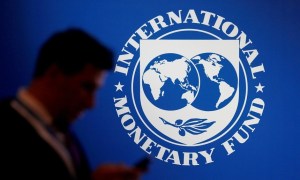- April 27th, 2025

In a 60 Minutes interview, President Joe Biden and Treasury Secretary Janet Yellen both stated that the US can manage the wars in Israel and Ukraine while maintaining its overall international defense. However, they differed on the military goals of...

The region of Africa, a horn-shaped region facing Arabia, the Gulf of Aden, the Indian Ocean, and Sudan and Egypt, is the most eastern part of Africa and has been a significant cradle of humankind since Lucy, the Miracle around...

Israel was surprised by a rocket attack by Hamas fifty years after the start of the Yom Kippur War, highlighting the strategic and tactical failures of Israeli intelligence in containing terrorist actions from the Gaza Strip. The attack exposed Israel's...

Elon Musk, once a heralded figure in electric vehicle technology and space exploration, has reaffirmed his status as the Beltway's number one opponent in a bold manner. Musk denied Ukrainian request to use Starlink for drone strikes on Sevastopol, leading...

The International Monetary Fund (IMF) is a crucial player in the international monetary system, providing financial support to countries in crisis. However, several emerging market economies, such as Sri Lanka and Pakistan, have experienced balance of payment difficulties. To maintain...

The Balticconnector, a 150-kilometer long natural gas pipeline connecting Finland and Estonia, was sabotaged 3,200 kilometers north of Gaza. The pipeline, completed in 2019, is Finland's only direct pipeline connection to the EU's natural gas network. On October 8, a...

Vladimir Putin's invasion of Ukraine and Russia's annexation of more of Kazakhstan, relations between the two countries have deteriorated. An increasing number of Kazakhs are expressing concerns about their country being the next target of Russian aggression and that Moscow...

The Italian government is expected to have more debt than expected, with a deficit of 4.3%, which is fueled by the already enormous public debt exceeding 140% of GDP. This has led to increased uncertainty regarding the sustainability of the...

The geopolitical transformations in the Persian Gulf, which has been primarily driven by oil. Oil, also known as "black gold," has significantly transformed the monarchies of Kuwait, Bahrain, Qatar, the United Arab Emirates, Oman, and Saudi Arabia, making them "petromonarchies."...
 Loading posts...
Loading posts...  All posts loaded
All posts loaded
No more posts

